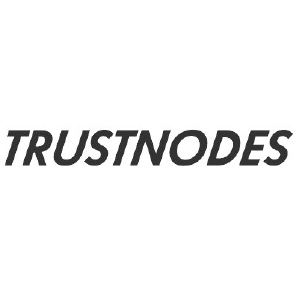Kraken Introduces Native Bitcoin Staking via Babylon Integration Kraken just made crypto history by becoming the first top-five exchange to launch native Bitcoin staking , thanks to a direct integration with Babylon—a protocol that unlocks yield on BTC without bridges, wrapping, or lending. This is a watershed moment for the ”BTCfi” ecosystem, offering millions of users a way to earn passive rewards on their Bitcoin while helping secure nascent proof-of-stake (PoS) networks. How Native Bitcoin Staking Works Unlike traditional staking, which is exclusive to PoS coins, Bitcoin's proof-of-work design has traditionally kept BTC holders outside the realm of yield. Babylon turns this narrative on its head by enabling users to vault their BTC in a time-locked deposit on the Bitcoin blockchain itself. Through the interface of Kraken, users can stake their Bitcoin to Babylon, which goes to work to secure Babylon Genesis and other PoS chains. The best part? Your BTC never leaves the Bitcoin chain, isn't wrapped or lent, and is always entirely visible and verifiable by anyone on-chain. Yield Mechanics: APR, Rewards, and Unbonding Period Kraken's new product pays rewards in Babylon's native BABY token, not Bitcoin, however. The estimated annual percentage rate (APR) ranges from 0.5% to 1% at the moment, with rewards compounding daily and settled weekly to your spot wallet. The APR is variable and can change as more users stake or Babylon's network grows. When you stake BTC, it's tied up for a minimum of about seven days. Your Bitcoin is not tradable or withdrawable during the unbonding period, and you don't earn rewards on the unstaking balance. Following the period, your BTC is returned to your spot balance, where you can trade or withdraw it. There is no minimum or maximum—stake as little or as much as you'd like, with no setup besides holding BTC in your Kraken account. Smart-Contract Risk and Security The Babylon protocol utilizes an open, on-chain Bitcoin script to coordinate staking, with cryptographically enforced disincentives and penalties for potential attackers. Unlike bridge solutions, there is no risk of your BTC being permanently lost to cross-chain attacks or lending failure by third parties. However, as with any smart-contract-reliant system, risks persist—protocol vulnerabilities, governance attacks, or unforeseen weaknesses can impact rewards or locked-up funds. Kraken and Babylon both point out that users retain full control and visibility of their staked BTC. All staking activities and rewards are public and verifiable, and users can unstake at any time (excepting the unbonding delay). However, as with any DeFi or staking product, users should understand the risks and only stake what they're comfortable locking up. Why This Could Supercharge BTCfi Only 0.8% of all Bitcoin is currently used in DeFi, in large part due to the risk and complexity of bridging BTC to other chains. Kraken's integration of Babylon offers a trust-minimized, Bitcoin-native approach to yield generation, opening the door for billions of idle BTC to finally participate in the burgeoning ”BTCfi” trend. As more exchanges and PoS networks incorporate Babylon, Bitcoin's economic gravity can help secure a new wave of blockchains and decentralized apps—without compromising Bitcoin's core security. Analysts believe that this release could be the spark that ignites the next wave of DeFi innovation, as users and institutions look for secure, yield-generating options for their BTC. With over 57,000 BTC already staked on Babylon's Genesis mainnet since April, the appetite is clearly there. The Bottom Line Kraken's addition of Babylon is a milestone for Bitcoin and DeFi, breaking open native yield for the world's largest crypto. With smart-contract security, auditable rewards, and no bridges required, this could be the spark that brings BTCfi into the mainstream—if users are ready to embrace the new risk and opportunity.
















